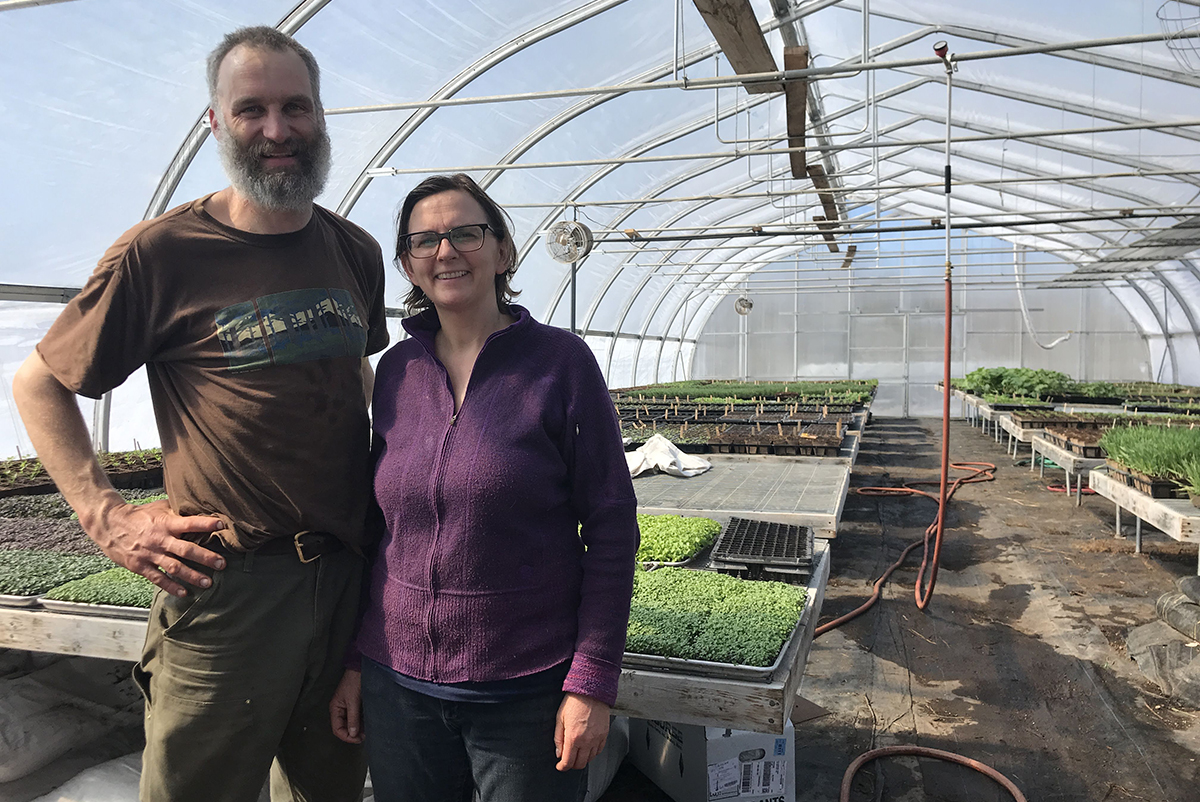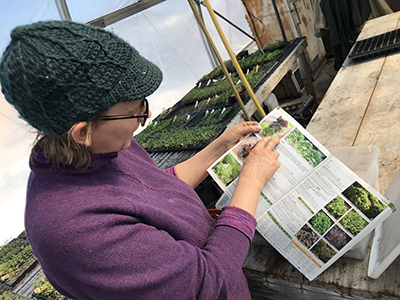Villageside Farm Joins Colby College’s Farm to Fork Roster

Villageside Farm owners Prentice Grassi and Polly Shyka in the greenhouse
Villageside Farm, a small farm about 30 minutes away from Colby College in Waterville, ME, is one of a handful of farms founded by Colby alumni that are now Bon Appétit Farm to Fork vendors.
Polly Shyka and Prentice Grassi, who started Villageside over 13 years ago, recently gave me a tour as part of the enrollment process.
Polly and Prentice own 80 acres of wooded land and 40 acres of land they live and grow food on — of that 40 acres, they have about 6 in production at any given time, growing a wide array of vegetables and some fruits. Hoop houses allow them to grow three full seasons out of the year, with a planned seasonal rotation within each of those that includes ginger, spinach, basil, tomatoes, and chickens. Even in the midst of a snowy end to a long Maine winter, the hoop houses were toasty warm: heated by wood stoves that warm water and pump it beneath the soil of each hoop house. The wood stoves are fueled by wood harvested from those 80 acres of wooded land.

Polly points out the varieties of lettuce she wants to grow for Bon Appétit
Polly took out her Johnny’s seed catalog and showed which lettuce varieties that she intends to sell to the Colby dining team. They are varieties that have been bred to look (and taste) like young plants even when mature, enabling chefs to utilize 100% of the plant, even the stems.
Polly and Prentice were excited about the prospect of selling to the Bon Appétit team at Colby, explaining that institutional buyers have always been the nut that local food has trouble cracking.
Later, Polly shared how they view their jobs partly as caretakers for the soil. She talked about how much American culture tends to undervalue good food, and how the key to a more sustainable future is getting the cost to reflect the value of protecting this soil. “What does a community have if it doesn’t have soil that can sustain them?” she asked. That’s exactly the kind of question that the Farm to Fork program was designed to answer.